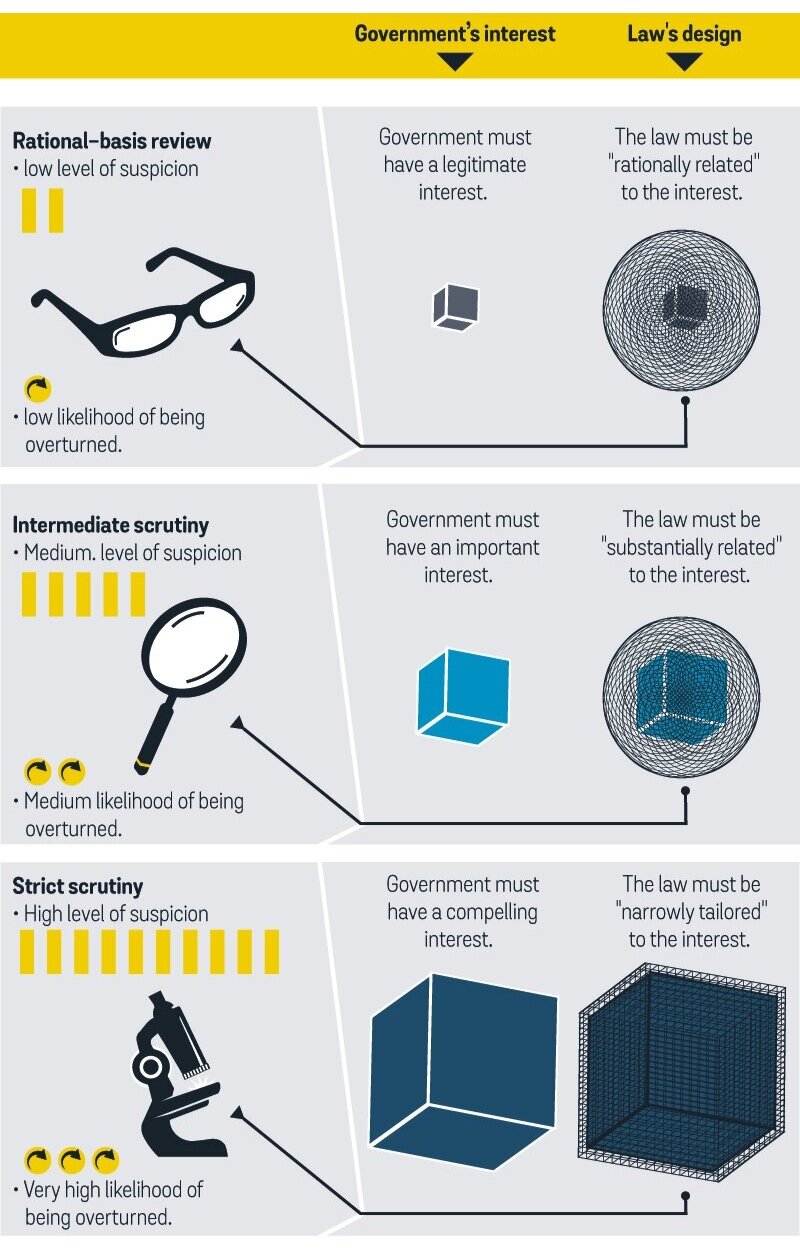
However, many states have enacted their own RFRA requirements as a matter of state law.Jackson Blanchard, 18, of Indianapolis, leads the crowd in a chant during a protest against the Indiana Religious Freedom Restoration Act, in Indianapolis in 2015. Flores (1997) that this attempt to reapply the compelling state interest test to states violated the Fourteenth Amendment. The Religious Freedom Restoration Act of 1993 (RFRA) reestablished a compelling government interest requirement for bona fide free exercise claims against federal regulation, but the Court ruled in City of Boerne v. So, for example, any attempt to regulate expression based on its content will require a showing of a compelling governmental interest, particularly where the speech occurs in a public forum or on public property traditionally available for expressive and associative activities. Davey (2004), the Court held that a compelling interest exists in complying with constitutional obligations, such as not violating the establishment clause.

Regulation aimed at First Amendment rights must be justified at a higher level

Regulation vital to the protection of public health and safety, including the regulation of violent crime, the requirements of national security and military necessity, and respect for fundamental rights are examples of compelling governmental interests. Although not explicitly defined, “compelling” is obviously intended to be a higher interest than “legitimate” or “important” some have described it as “necessary” or “crucial,” meaning more than an exercise of discretion or preference. Strict scrutiny, however, requires the government to demonstrate that it is using the most narrowly tailored, or least restrictive, means to achieve an interest that is compelling. Under intermediate scrutiny, applied to such issues as content-neutral regulation of speech - the court requires that the government show that the regulation serves an “important” interest. Under rational basis review, the most common and lowest level of scrutiny, a court asks only whether a governmental regulation might serve some “legitimate” governmental interest. Carolene Products Company (1944) - regulation aimed at fundamental rights, the operation of the political process, and disadvantaged minorities must be viewed with more scrutiny and subjected to stricter review. In time, the patent unworkability of this pretense led justices, including Harlan Fiske Stone, to articulate an overt double (and later triple) standard for constitutional reviews: Most governmental regulation, including most economic regulation, would be presumed constitutional, but - as Stone explained in his famous footnote four in United States v. Prior to the mid-twentieth century, courts gave great deference to acts passed or issued by the legislative and executive branches. The levels of scrutiny determine how courts prioritize competing interests of individual and governmental claimants.

(Photo of Amish schoolchildren in 2006 by via Wikimedia Commons, CC by 2.0)Ī compelling state (or governmental) interest is an element of the strict scrutiny test by which courts exercise judicial review of legislative and executive branch enactments that affect constitutional rights, such as those found in the First Amendment.Īn interest is compelling when it is essential or necessary rather than a matter of choice, preference, or discretion.

Yoder (1972), the Court allowed Amish parents to withdraw their children from school at age fourteen, despite a state law requiring attendance until sixteen, because the additional two years of education was not a compelling enough interest to burden the practice of religion. But courts have decided other regulations go too far. Regulation vital to the protection of public health and safety, including the regulation of violent crime, the requirements of national security and military necessity are examples of compelling governmental interests. A government regulation that impairs First Amendment rights must meet a higher standard of need, called a "compelling government interest," to be constitutional.


 0 kommentar(er)
0 kommentar(er)
